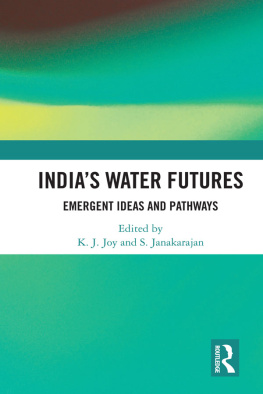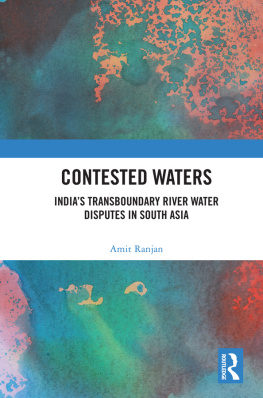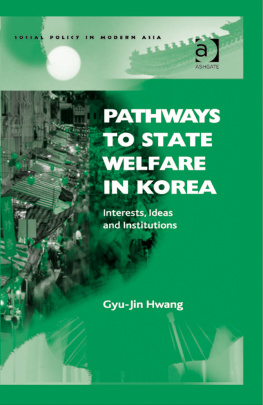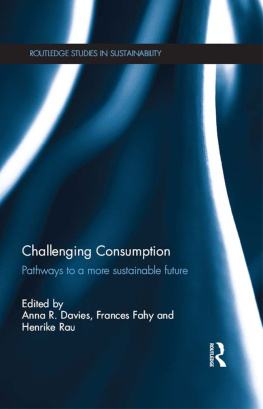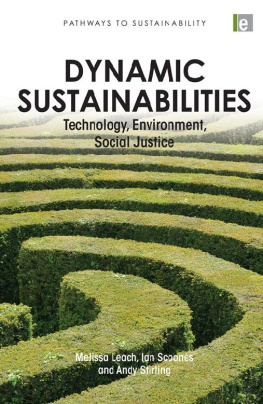K. J. Joy - Indias Water Futures: Emergent Ideas and Pathways
Here you can read online K. J. Joy - Indias Water Futures: Emergent Ideas and Pathways full text of the book (entire story) in english for free. Download pdf and epub, get meaning, cover and reviews about this ebook. year: 2020, publisher: Taylor & Francis, genre: Politics. Description of the work, (preface) as well as reviews are available. Best literature library LitArk.com created for fans of good reading and offers a wide selection of genres:
Romance novel
Science fiction
Adventure
Detective
Science
History
Home and family
Prose
Art
Politics
Computer
Non-fiction
Religion
Business
Children
Humor
Choose a favorite category and find really read worthwhile books. Enjoy immersion in the world of imagination, feel the emotions of the characters or learn something new for yourself, make an fascinating discovery.
- Book:Indias Water Futures: Emergent Ideas and Pathways
- Author:
- Publisher:Taylor & Francis
- Genre:
- Year:2020
- Rating:3 / 5
- Favourites:Add to favourites
- Your mark:
- 60
- 1
- 2
- 3
- 4
- 5
Indias Water Futures: Emergent Ideas and Pathways: summary, description and annotation
We offer to read an annotation, description, summary or preface (depends on what the author of the book "Indias Water Futures: Emergent Ideas and Pathways" wrote himself). If you haven't found the necessary information about the book — write in the comments, we will try to find it.
K. J. Joy: author's other books
Who wrote Indias Water Futures: Emergent Ideas and Pathways? Find out the surname, the name of the author of the book and a list of all author's works by series.
Indias Water Futures: Emergent Ideas and Pathways — read online for free the complete book (whole text) full work
Below is the text of the book, divided by pages. System saving the place of the last page read, allows you to conveniently read the book "Indias Water Futures: Emergent Ideas and Pathways" online for free, without having to search again every time where you left off. Put a bookmark, and you can go to the page where you finished reading at any time.
Font size:
Interval:
Bookmark:
- analyses the growing water insecurity, increase in demand, inefficiency in water use and growing inequalities in accessing clean water;
- sheds light on water footprint in agricultural, industrial and urban use, pressures on river basin management, depleting groundwater resources, patterns of droughts and floods, watershed-based development and wastewater and sanitation management;
- examines water conflicts, lack of participatory governance mechanisms and suggests an alternative framework for water regulation and conflict transformation;
- highlights the relationship between gender discourse and water governance;
- presents an alternative agenda for water sector reforms.
and S. Janakarajan

A catalogue record for this book is available from the British Library
A catalog record has been requested for this book
by Apex CoVantage, LLC

Font size:
Interval:
Bookmark:
Similar books «Indias Water Futures: Emergent Ideas and Pathways»
Look at similar books to Indias Water Futures: Emergent Ideas and Pathways. We have selected literature similar in name and meaning in the hope of providing readers with more options to find new, interesting, not yet read works.
Discussion, reviews of the book Indias Water Futures: Emergent Ideas and Pathways and just readers' own opinions. Leave your comments, write what you think about the work, its meaning or the main characters. Specify what exactly you liked and what you didn't like, and why you think so.

